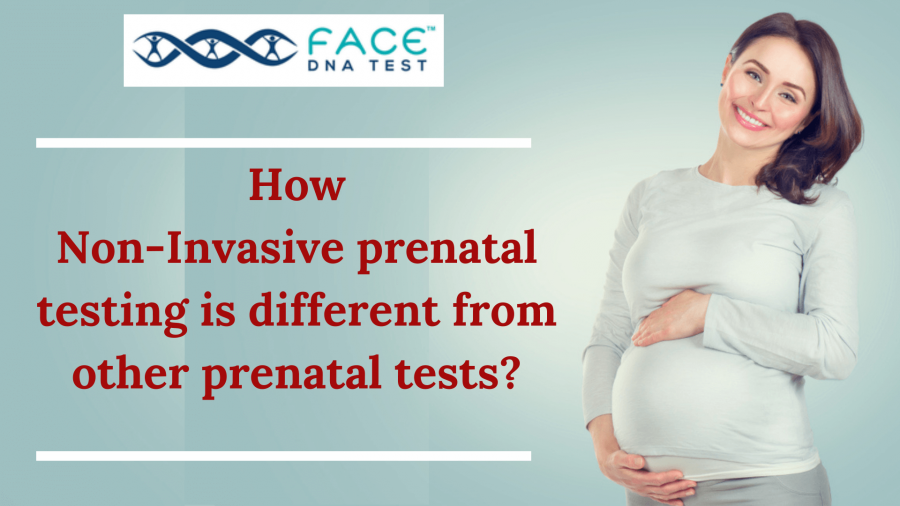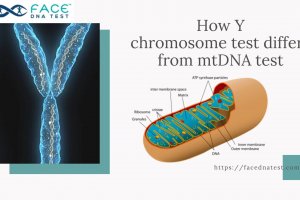Noninvasive DNA prenatal testing is also called cell-free fetal DNA screening. NIPS screening is done by taking a sample of maternal blood which is drawn at any time after 10 weeks of pregnancy. The main benefit of NIPS is that it can identify if your baby is at risk for chromosomal disorders. Most commonly, this prenatal testing determines the risk of disorders such as Down syndrome (trisomy 21), Trisomy 18, Trisomy 13, and also the conditions caused by the missing or extra X and Y chromosomes.

It’s important to know that NIPS is a screening test, not a diagnostic test; this means, it can’t diagnose the genetic condition with certainty but can predict the risk of a disorder.
How accurate is the Noninvasive DNA prenatal testing
In a recent study, it was proven that NIPT or NIPS has very high sensitivity and specificity for Down syndrome. For other conditions such as Trisomy 18, and Trisomy 13, the sensitivity is slightly lower but still strong. There are also false positive NIPT screening results, and your healthcare provider will likely order you for additional diagnostic tests.

It is better to contact DNA testing professionals who can assist you properly and help you choose a suitable prenatal test for you. For example; you can search “DNA testing Fort Worth” and you will get numerous options of DNA centers in your particular city.
What is NIPT test?
Non-invasive prenatal testing, or NIPT test, is a verification process examining tiny fragments of cell-free fetal DNA swimming in the mother’s blood. Medical practitioners can use this DNA testing procedure to screen for specific genetic abnormalities in the developing newborn without causing any intrusive testing or harm to the fetus. The interpretation of the infant’s genetic markers provides an early diagnosis of potential issues. This non-invasive approach involves taking a mother’s blood sample to analyze the fetus’s DNA instead of removing tissue samples from the amniotic fluid.
How NIPT test different than other prenatal tests?
A painless and non-invasive blood test known as NIPT looks for minute pieces of fetal DNA floating around in the mother’s circulation. Although they detect chemicals and proteins instead of DNA, other popular prenatal procedures, including quad screenings and sequential screenings, also require the mother’s blood. The collection of amniotic fluid or placenta samples is necessary for more invasive testing such as amniocentesis and CVS (chorionic villus sampling) where a tissue sample is drawn from the fetus during pregnancy. the invasive methods are painful as well as dangerous for the growing baby and mother’s health.
How long does NIPT results take?
It usually takes between seven and ten days for the laboratory to acquire the blood sample and get findings from the NIPT. One benefit of this form of prenatal screening over others, such as quad or sequential testing, which can take up to two weeks, is speedy findings. Since NIPT analyzes fetal DNA directly instead of through indirect markers, it yields findings more quickly.
Does Blue Cross Blue Shield cover NIPT testing?
Anthem Blue Cross Blue Shield, the first insurance provider in the US to go beyond high-risk pregnancies, announced that it will pay for noninvasive prenatal testing or otherwise known as NIPT pregnancy test for most pregnant women.
Following its new policy, Anthem believes that, regardless of risk status, prenatal screening for fetal aneuploidy (trisomy 13, 18, and 21) using cell-free fetal DNA is medically required for women having a single gestation.
How does non-invasive prenatal testing compare to amniocentesis?
Instead of being a diagnostic test, NIPT is a genetic screening. NIPT is not a diagnostic test; in contrast, medical conditions cannot be diagnosed by amniocentesis or chorionic villus sampling (CVS), two genetic tests that can be performed during pregnancy. It just informs us of the likelihood that a condition will exist.
Being noninvasive and low-risk for both the expecting mother and the developing baby is the primary benefit of NIPT versus amniocentesis. There is a slight chance of miscarriage during amniocentesis. While NIPT can accurately detect Down syndrome, it is not able to identify other chromosomal disorders, such as amniocentesis. Individuals who receive good findings from NIPT frequently undergo amniocentesis as an additional confirmation test.
Choose Clarity with Our DNA Test.
Get Accurate Answers With our Test!.
-
- Accurate
- Quick Result
- Private and Secure
- Affordable

Conclusion
The highly precise and noninvasive Nipt Pregnancy Test is a diagnostic tool for prevalent trisomies. It cannot completely take the place of more thorough procedures like amniocentesis, which directly analyzes fetal chromosomes. To find out if NIPT is suitable for them throughout the course of their pregnancy, clients should consult with their physician.





1 Comment
Leave your reply.